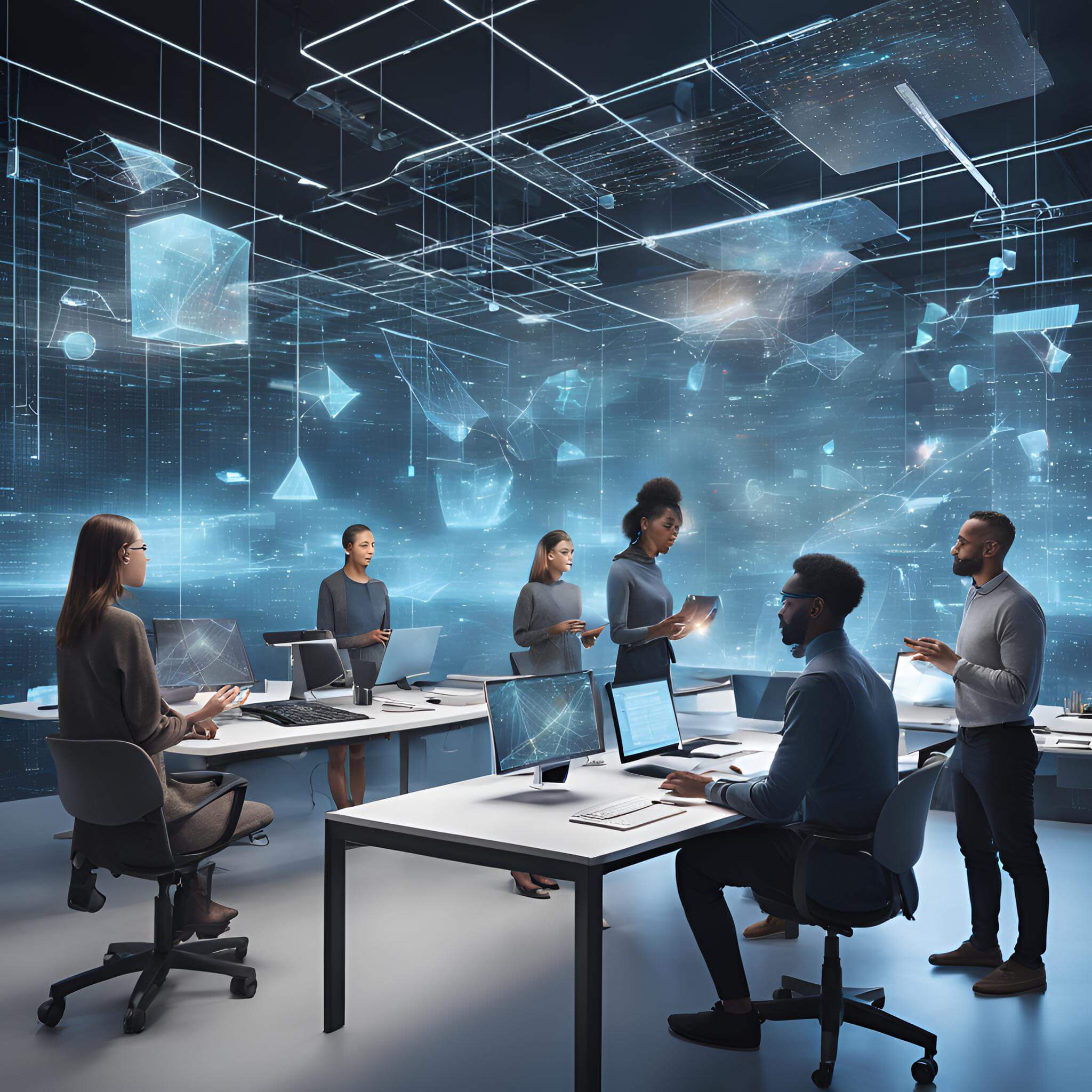AI is Here, Are We Replaceable?
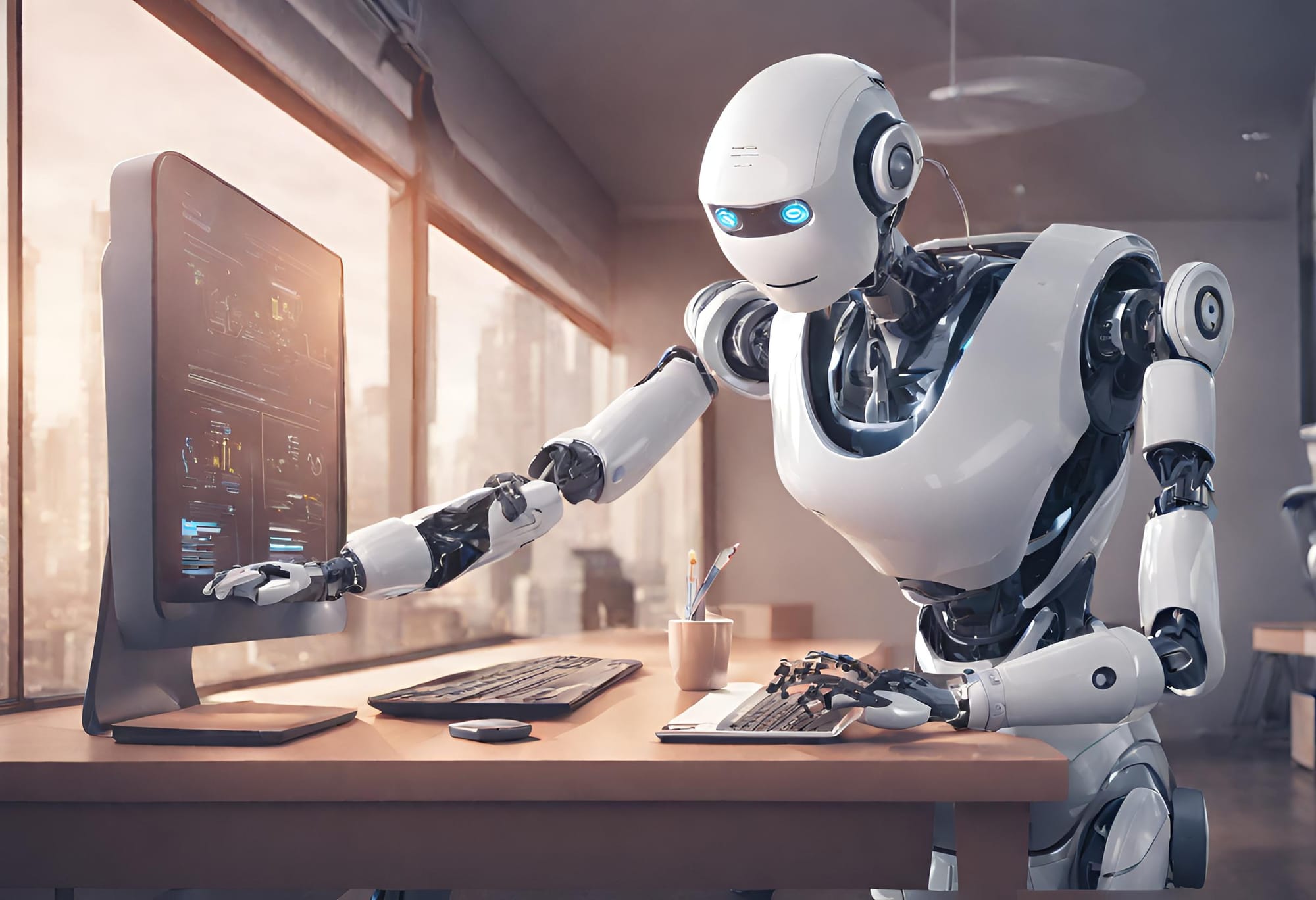
Before we start, I’ll tell you how my experience with AI so far. My journey into understanding and creating AI began during my university thesis in 2020. For my thesis, I built and analyzed AI models to analyze and calculate engagement rates for Facebook content. Three years after parting ways with AI, I discovered a tool called ChatGPT that made me feel like Aladdin with a genie in a bottle, capable of solving any problem I had. Honestly, “I sometimes didn’t think twice before using ChatGPT instead of my own brain.”
How AI is Made: for Dummies

Before delving into whether AI will replace us all, let’s briefly explore how AI is created in simple terms. Imagine AI engineers as master chefs, gathering ingredients (data) to prepare a delectable dish (the AI model). Once the dish is ready, we can feed it different inputs, and it will process those based on the flavors (knowledge) it has learned from the ingredients.
However, just like any dish, AI models can go stale if not continuously updated and refined. This constant need for freshness, combined with sourcing the right ingredients, having top-notch kitchens (powerful computers), and ongoing training, makes creating AI models an expensive endeavor. As the saying goes, “Good food ain’t cheap, and cheap food ain’t good.”
But this is no longer science fiction; AI tools are now accessible at a relatively low cost, from services like ChatGPT, where you can create AI tools tailored to your needs, to software and websites equipped with AI capabilities. “This has made the cost of developing AI tools significantly cheaper than before.” In fact, if you search online, you’ll likely find AI tools that could potentially replace you and your job 😈. Ironically, this very writing was proofread and enhanced by AI (don’t worry, the ideas and notes are mine; AI just helped with language and vocabulary since my language skills are notoriously poor).
The Rise of AI and Its Impact
Before continuing, please take a few minutes to watch this Youtube video.
How’s that? Feeling depressed about the future and the prospect of being replaced by AI yet? As the famous quote goes, “The times they are a-changin’.
“So, will AI really replace us and our jobs?”
For me, the answer is both yes and no, depending on the context. AI can indeed perform many tasks traditionally done by white-collar workers, as evidenced by the shrinking job market. However, I have two cases or reasons why the human role will remain essential for organizations and companies to function properly (victory for humanity!!!) ✌️.
1. An Ever-Evolving World
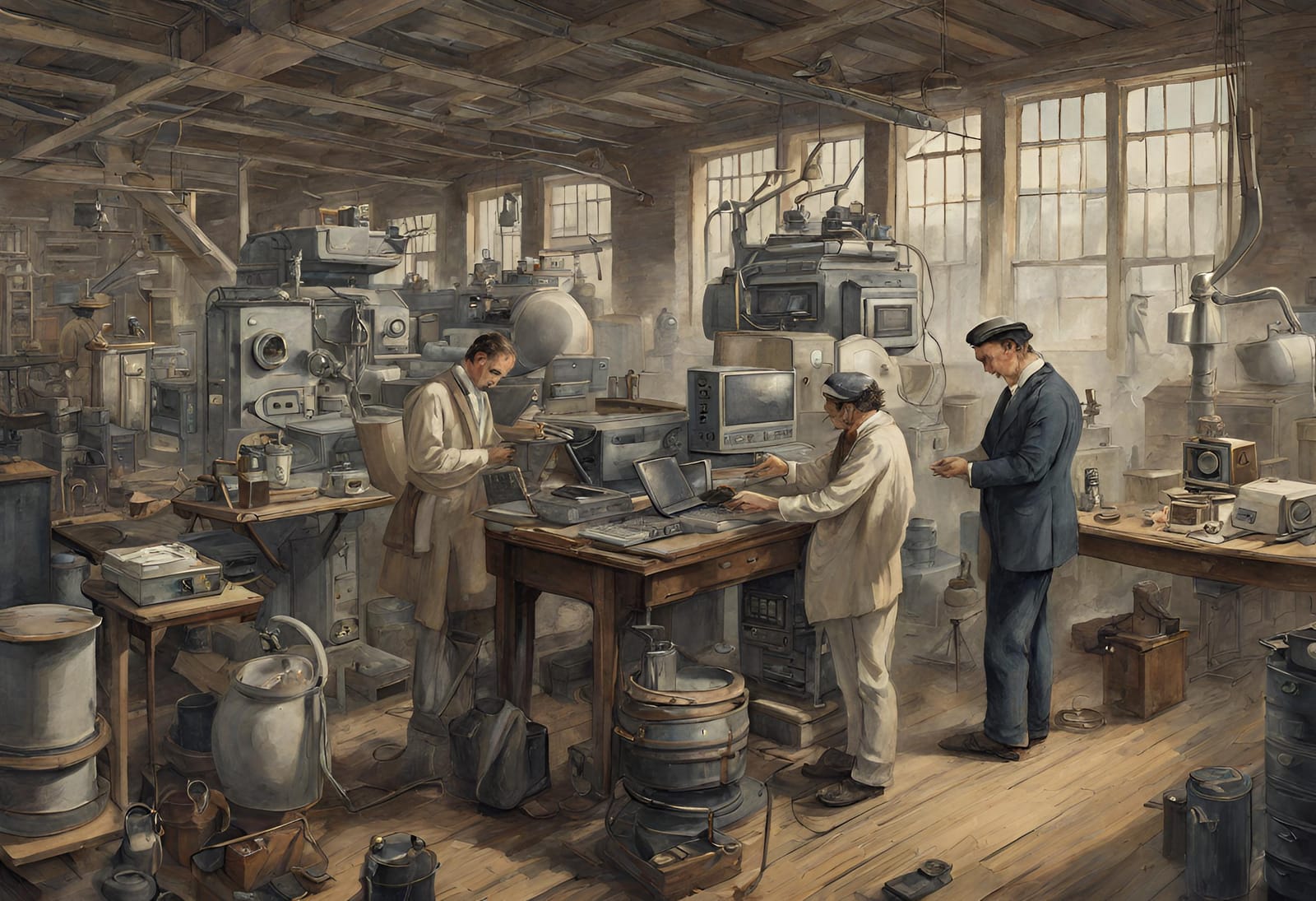
Change is the only constant in this world.
As the world continually evolves, humans must adapt, and only humans can initiate and drive that change. We have already experienced numerous shifts in eras, rules, and regulations, allowing us to keep up with the times.
Consider the rise and fall of certain jobs, the ever-changing laws and regulations, and the rapid pace of technological advancements. Developing tools, ideas, and intelligence for human life can only be accomplished by humans, as we alone can understand context, emotions, and specific details. AI can only mimic these aspects. As the saying goes, “Imitation is the sincerest form of flattery.”
If AI is not well-maintained, it will become outdated and eventually abandoned. Some might argue that there’s no issue if AI is properly maintained. However, a study by a university found that continuously using AI-generated outputs to train the same AI model can lead to compounding errors, ultimately destroying the model itself. This suggests that human intelligence remains crucial for maintaining the quality of AI outputs, indirectly making natural intelligence an essential raw material for artificial intelligence.
2. AI: Artificial Intelligence
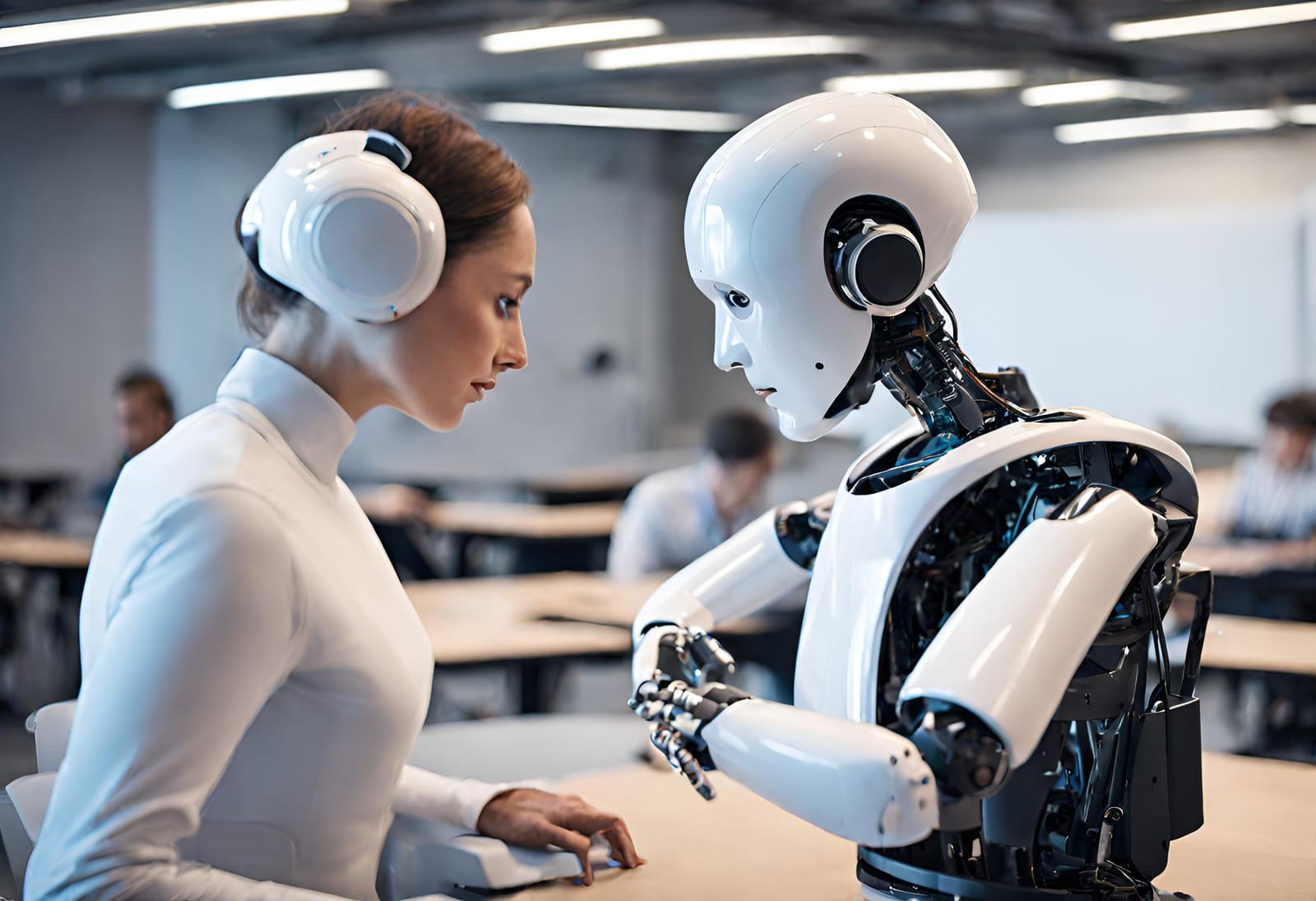
As the name implies, AI is artificial intelligence, meaning it requires the raw material of human intelligence to function. “It cannot operate solely on artificial intelligence.” As the famous quote goes, “Natural intelligence is the building block of artificial intelligence.”
While AI can mimic and even surpass certain human cognitive abilities, it is ultimately derived from the data, algorithms, and frameworks created by human minds. AI systems are based on the knowledge, reasoning, and problem-solving capabilities that humans have developed over time.
This is not to downplay AI’s immense potential but rather to highlight its symbiotic relationship with natural intelligence. As AI grows more sophisticated, it amplifies and extends human capabilities, allowing us to tackle increasingly complex challenges. However, the true sparks of ingenuity, creativity, and paradigm shifts still originate from the human intellect.
AI is an incredibly advanced tool, but a tool nonetheless. Its power lies not in replacing, but in complementing and augmenting human intelligence. The future will belong to the partnership between artificial and natural intelligence, each pushing the other further than what could be achieved alone.
What Should We Do?
Due to the rapid pace of change, rules, laws, and regulations cannot contain, monitor, and keep up with current technological advancements. Therefore, self-regulation and an awareness of responsible AI usage are necessary from every user. “With great power comes great responsibility” (Uncle Ben, Spider-Man).
Regulating emerging technologies is not new; for instance, when purchasing a printer nowadays, there’s an anti-counterfeit sticker to prevent its misuse for printing counterfeit money. Similarly, regulations for AI usage may emerge, such as watermarking AI-generated images or rules for AI in education and creative industries.
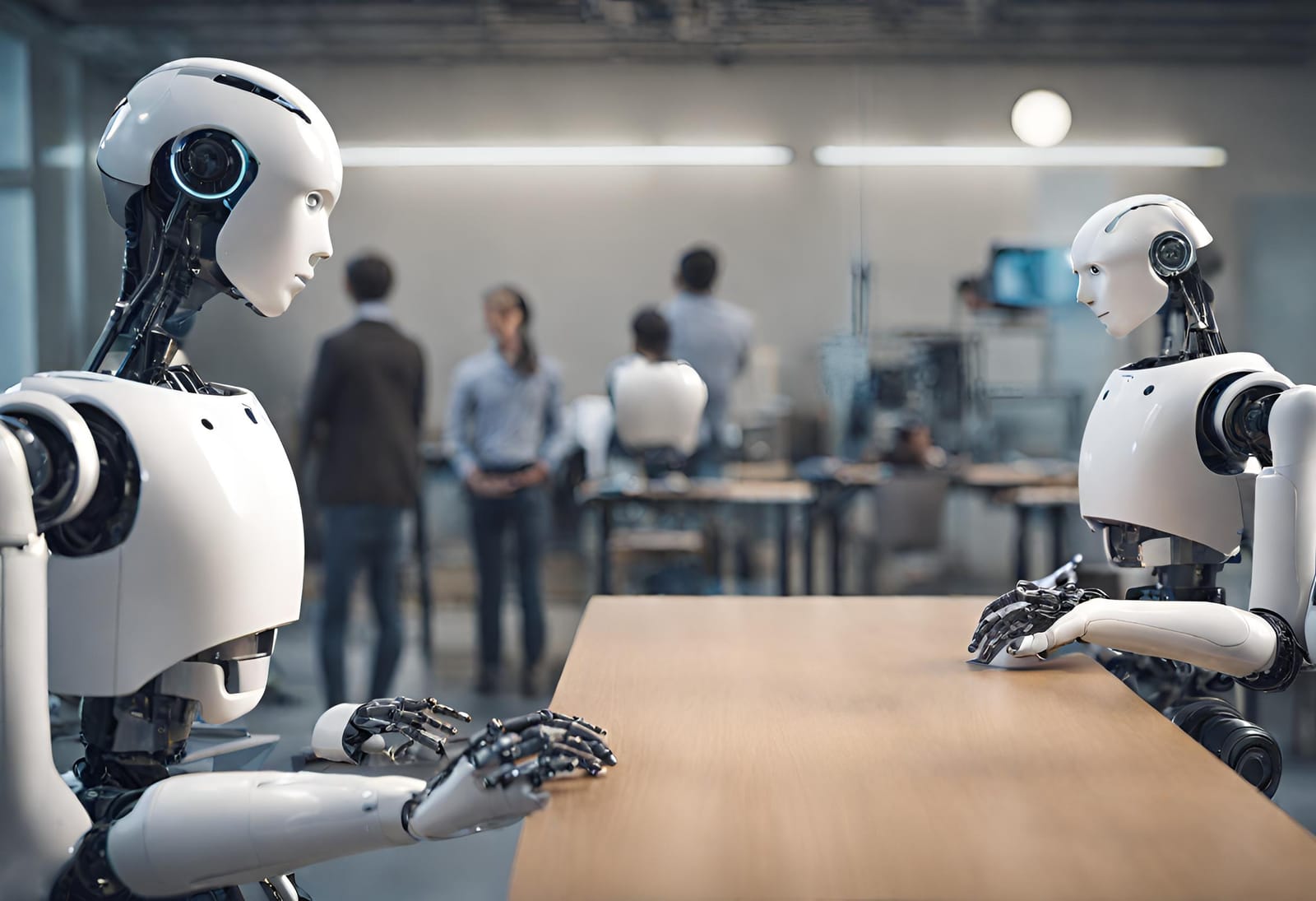
However, AI should not become an “us vs. them” concept where artificial intelligence development must be fought and destroyed. Instead, AI should be utilized as a tool to facilitate tasks and work. This is not a new concept for us humans, as we continually evolve and seek ways to make things easier (isn’t that why we evolved in the first place?). For example, with the invention of computers, everyone could perform complex mathematical calculations in minutes with a computer’s aid. I don’t recall anyone calling for the eradication of computers back then 😒.
Despite these changes, human civilization persisted, with new jobs emerging for each one that became obsolete due to evolving times. Furthermore, numerous innovations followed such technological breakthroughs. As the famous quote goes, “Necessity is the mother of invention.”
The Way Forward
In conclusion, I believe a macro and micro effort is required for the proper utilization and exploitation of AI. On a macro level, regulations and rules for AI usage across various domains will be necessary, along with revisiting systems and aspects related to the macro, such as education, trademarking systems, and more.
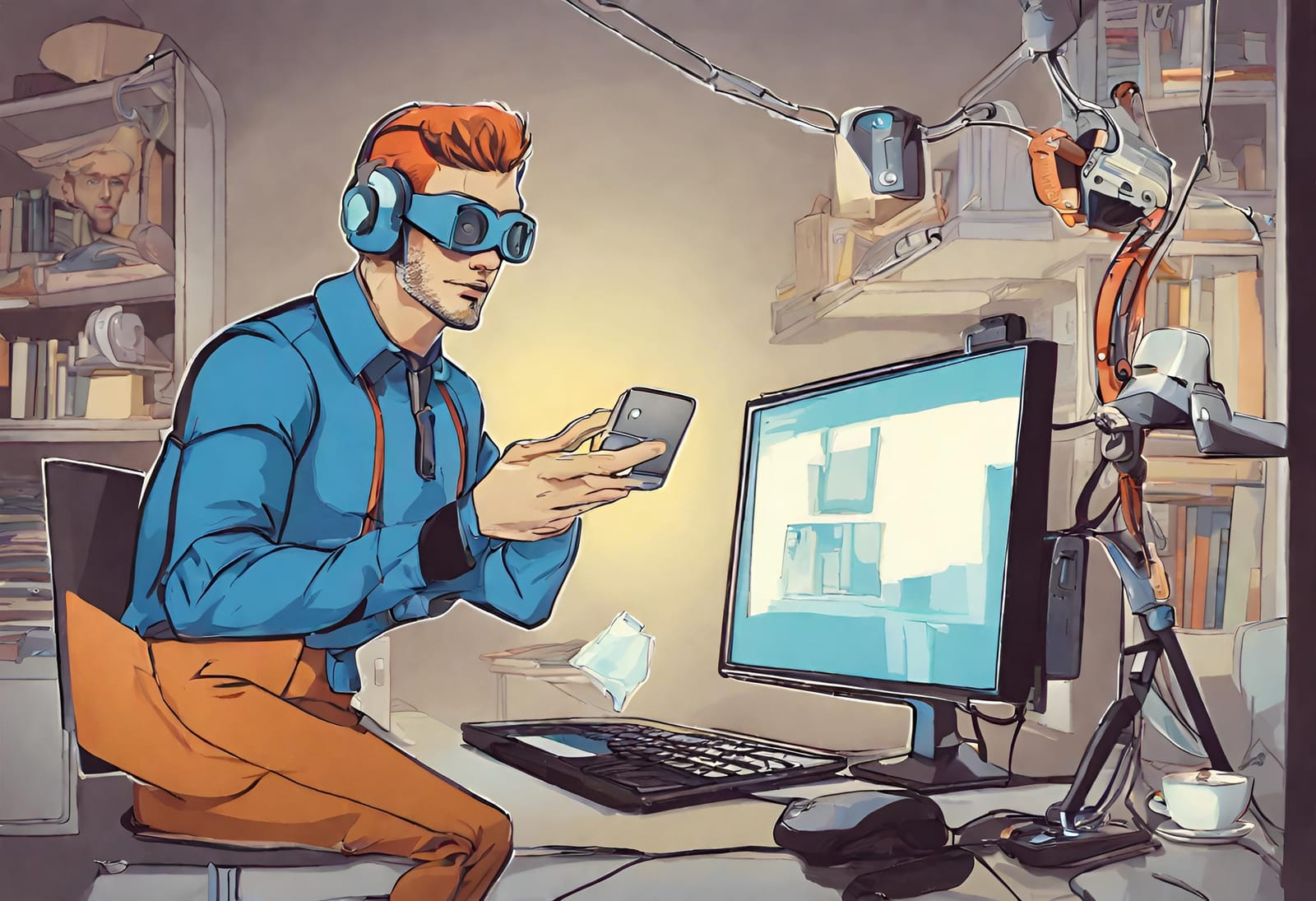
On a micro level, AI users must be fully aware of using artificial intelligence responsibly and ethically, without abusing it for nefarious purposes. Moving forward, the best workers will be hybrid workers who not only possess and understand their field of work but also leverage AI to assist them while remaining committed to continuous learning and growth, whether through AI or independent study. They will not be workers who rely solely on their abilities or those who use AI without verifying and learning from its outputs. “The future belongs to those who learn more skills and combine them.”
Since we cannot stem the tide of progress, we must all embrace the changing times and continue evolving accordingly. As the ancient Greek philosopher Heraclitus said, “The only constant in life is change.”
